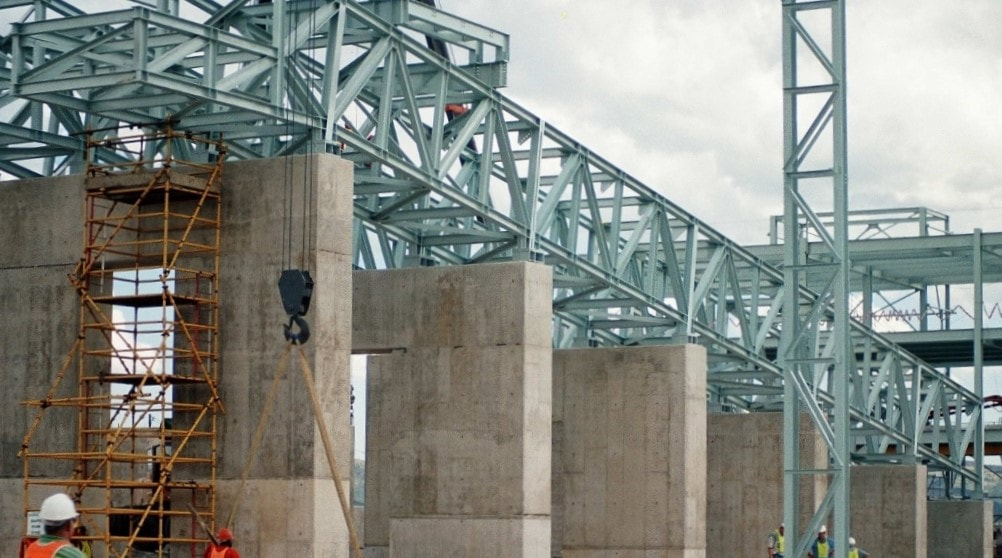|
Over the course of the last 3 weeks I’ve discussed ways in which construction companies can improve their cash flow position. Negative cash flow – the death for many construction companies, and How to improve cash flow on your construction projects - Part 1, and How to improve cash flow on your projects - Part 2 In this article I’ll discuss what contractors can do when they bid for their next construction project to improve their cash flow during the execution of the project. Contractors often become excited at the prospect of winning a new project and many don’t stop to consider if they have the finance to survive the negative cash flow that many construction projects entail. Often the bigger the project, the larger the cash flow strains your construction company will face. It’s important during the bidding stage that you prepare an accurate forecast of the anticipated cash flow for the project. If you are unable to sustain any negative cash flow affects it may be better to not price the project, or, you need to develop a strategy to mitigate the negative cash flow. In addition it is important to understand the payment terms and conditions in the contract. Unfortunately some contractors don't, then they get an unpleasant surprise when they have to wait an inordinately long time for their payment or when the payment terms and milestones are particularly onerous. #cashflow #contractors #constructioncashflow "Construction companies can do many things when pricing projects and submitting quotations to improve their cash flow" How to improve cashflow in your construction companyConstruction companies can do many things when pricing projects and submitting quotations to improve their cash flow such as: 1. checking that the client can meet their financial obligations on the project – this sounds straight forward yet it’s amazing how many construction companies end up working for a client who doesn’t have the funds to pay them In construction it’s important to know your clients. It could save you. 2. researching whether the client is known to pay the full value of the monthly valuations on time – some companies have a reputation for paying their contractors late, or, their projects end in legal disputes which could delay payments and also reduce the amount the contractor is eventually paid 3. negotiating more favourable payment terms which may include: a. negotiating to be paid interim valuations in the course of the contract b. arranging for the valuations to be paid within a shorter period than stipulated in the tender c. being able to submit invoices at an earlier date or more frequently d. the client withholding a lesser percentage as retention, or capping the amount of retention money withheld to a maximum value e. payment for materials which haven’t been built into the project but have been delivered to the project – this might be particularly relevant for expensive pieces of equipment f. replacing the retention money with a surety bond g. asking the client to provide a payment guarantee which could ensure that if they got into financial difficulties you could claim against it h. requesting the client to make an advance payment (particularly to cover the purchase of major items of equipment or material) i. structuring the project price in a manner that a larger portion of the project overheads are paid at the start of the contract, or that work done earlier in the project has a higher value than work done later (I’ve run many contracts with over-claims running in excess of a million dollars just by structuring the tender correctly and ensuring that our monthly progress valuations were maximised) 4. requesting the client release retention money earlier by: a. shortening the duration it’s held b. releasing it in tranches as interim milestones are achieved 5. reducing the value of the guarantees 6. allowing the guarantees/bonds to be released earlier or when important interim milestones have been achieved 7. understanding if the value of the project is going to grow substantially – now most contractors love it when the value of their contract grows, but this could place additional strains on your cash flow, particularly if the value of retention money increases, and the sureties are withheld for a longer period 8. understanding the risk of the contract schedule being extended – again this is often in the contractors favour if they are able to agree variations for this extension, however it will mean that retention money and sureties/bonds will be held for a longer period which could impact cash flow 9. understanding when the final completion date is – this is particularly important for subcontractors, since in some contracts the general contractor (main contractor) may specify a completion date linked to their completion date and not when the subcontractor’s work is completed – again this may impact final payments and release of retention monies 10. preparing a cash flow forecast which is based on the schedule, when payments will be made and when costs will have to be paid 11. checking the payment terms and conditions for suppliers and subcontractors that have quoted for the work – some of these may be substantially different to your terms with the client, and in some cases specialist suppliers may demand upfront payments As an incentive to the client you may need to give them a discount for agreeing to better payment terms. This discount could also make your price more attractive compared with your opposition. Often it may be necessary to explain to the client why they won’t be disadvantaged or the project put at risk by agreeing to slightly different terms. #pricingconstructionprojects #constructionmanagement #constructionfinance "Once the construction contract is in place it is impossible to modify the contract terms and conditions" Once the construction contract is in place it is almost impossible to modify the terms or conditions with the client so it is important to agree all the terms and conditions before signing the contract. Don’t start construction projects without a proper contract A little extra thought when preparing and submitting your price could make a substantial difference to your company’s cash flow later. Thank you for reading this article. If you found it useful please like or share it. Please add your comments so we can all learn from your experiences.  (Written by Paul Netscher the author of the acclaimed books ‘Successful Construction Project Management: The Practical Guide’ and ‘Building a Successful Construction Company: The Practical Guide’. Both books are available in paperback and e-book from Amazon and other retail outlets. This article is adapted from information included in these books.) "I have what I consider some of the best books on construction management. Thanks for sharing what you have learned." (Reader Amazon.com) © 2022 This article is not to be reproduced for commercial purposes without written permission from the author.
construction management construction project management
4 Comments
Leonard Alufurai
11/5/2015 11:58:06 am
This articles are very important especially for my company.
Reply
Paul
13/5/2015 03:30:49 am
Thanks Leonard I'm pleased I am assisting you. Please pass on the details of this website to others who may benefit from the information.
Reply
Qs. Habibu Mgowela
12/5/2015 12:25:16 pm
Thanks for sharing knowledge, for real it help me
Reply
Stephen Manyangu
16/12/2015 11:09:46 pm
Reply
Leave a Reply. |
Archives
June 2024
Note: We welcome genuine comments, especially comments that add additional information to the subject matter in the article. We however reserve the right to remove inappropriate comments, which includes comments that have nothing to do with the subject, comments that include inappropriate language, and comments that are an advertisement for a product or company, or which include an advertising link. Comments must be in English. We will not enter into discussion on why a particular comment was removed.
CategoriesCopyright 2016 - The attached articles cannot be reproduced for commercial purposes without the consent of the author.
The opinions expressed in the attached articles are those of the writer. It should be noted that projects are varied and different laws and restrictions apply which depend on the location of the contractor and the project. It's important that the reader uses the supplied information taking cognisance of their particular circumstances. The writer assumes no responsibility or liability for any loss of any kind arising from the reader using the information or advice contained herein. "I have what I consider some of the best books on construction management."
Books are available from: Amazon.com Amazon.co.uk takealot.com kalahari.com Amazon.in Amazon.de Amazon.fr Amazon.it Amazon.com.au Powell's Fishpond uread bokus Amazon.ca Amazon.es Other retail stores Available in paperback or on Kindle "28 YEARS OF CONSTRUCTION PROJECT MANAGEMENT EXPERIENCE, DEVELOPING SUCCESSFUL CONSTRUCTION PROJECT MANAGERS AND BUILDING SUCCESSFUL CONSTRUCTION COMPANIES"
|





 RSS Feed
RSS Feed




